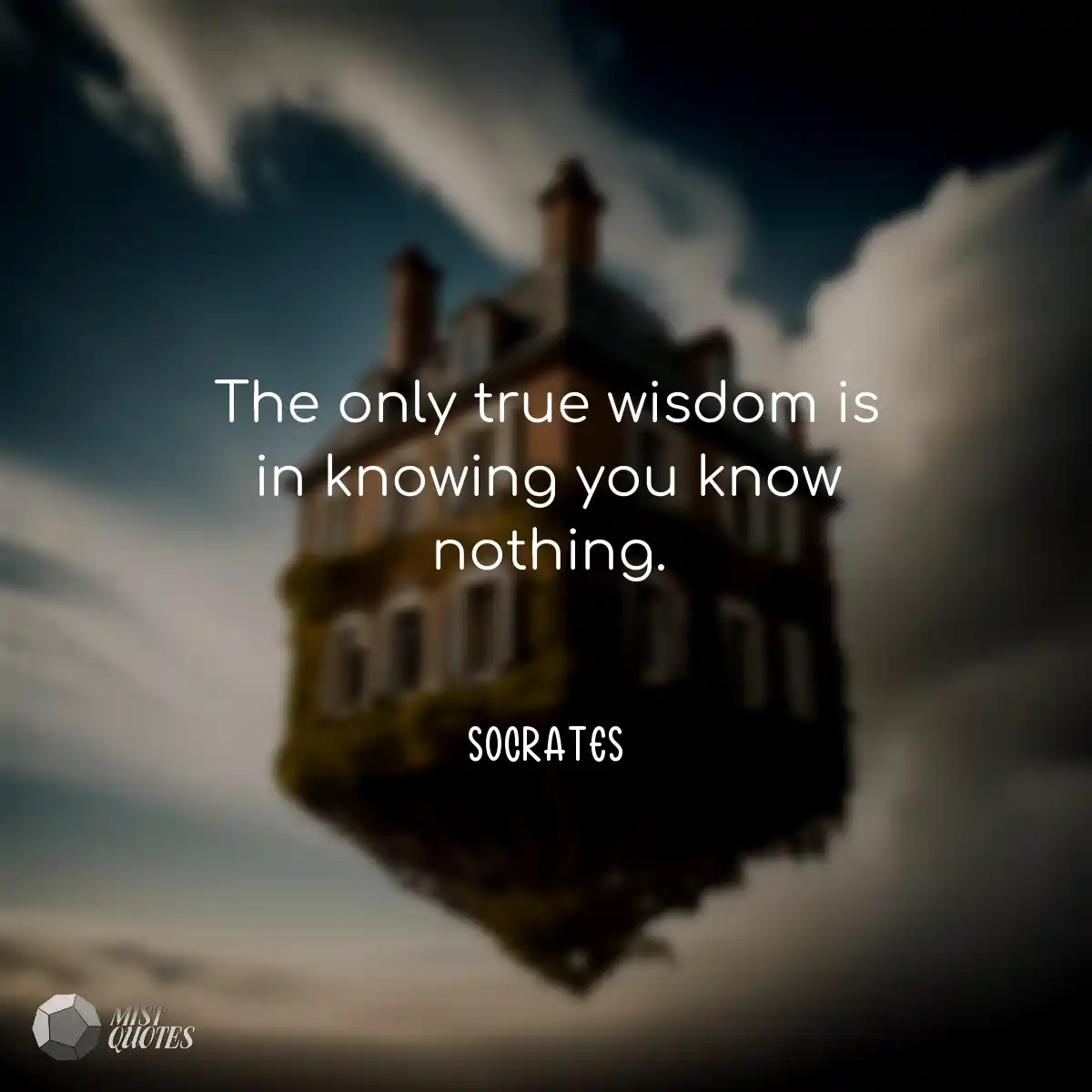
Socrates
Philosopher

An unexamined life is not worth living.

Know thyself.

I know that I am intelligent because I know that I know nothing.

True wisdom comes to each of us when we realize how little we understand about life, ourselves, and the world around us.

The only true wisdom is in knowing you know nothing.

Beware the barrenness of a busy life.

To find yourself, think for yourself.

Education is the kindling of a flame, not the filling of a vessel.

He who is not a good servant will not be a good master.

The greatest way to live with honor in this world is to be what we pretend to be.
Socrates was one of the most influential philosophers of Ancient Greece and one of the founders of Western philosophy. He was born in Athens around 470 BC and dedicated his life to the pursuit of knowledge and the promotion of virtue.
Information about Socrates' life is limited, since he left no written records. Therefore, most of what we know about him comes from the accounts of his disciples, especially his most famous pupil, Plato.
Socrates lived in a crucial period of Greek history, known as the Classical Period. Athens was a prosperous city-state and the birthplace of democracy. However, there were also political and social conflicts going on. Socrates witnessed the Peloponnesian War, a conflict between Athens and Sparta, which had a significant impact on the political and cultural life of the time.
Socrates' philosophical approach was characterized by his method of questioning and searching for truth. He believed that genuine knowledge could be attained through a series of carefully conducted questions and answers.
This method, known as "maieutics" or "artfulness", sought to reveal the ignorance of individuals by exploring their beliefs and opinions. Socrates was not content with superficial answers, but encouraged his interlocutors to examine their own convictions and seek a deeper understanding.
Socrates emphasized the importance of self-reflection and self-knowledge. He believed that the search for wisdom was intrinsically linked to virtue and that a life examined was a life well lived.
Socrates' achievements are many and diverse. His main aim was to teach his followers to think critically, question their own beliefs and seek virtue. He influenced a generation of philosophers, including his famous pupil, Plato.
Although Socrates left no written records, his philosophy and methods were preserved by his disciples. Plato recorded many of Socrates' dialogues in his works, such as "Apology", "Criton" and "Phaedrus".
Socrates also challenged the social and political norms of his time. His way of questioning the authorities and exploring the nature of justice and morality often brought him into conflict with the Athenian rulers and citizens. He was accused of corrupting youth and disrespecting the city's gods. In the end, Socrates was sentenced to death by poisoning with hemlock.
Despite his tragic death, Socrates' legacy continued to influence later generations. His philosophy and his example of life have left a lasting impact on human thought.
Recent Quotes
"To help a friend in need is easy, but to give him your time is not always opportune."
Charlie Chaplin
"Life can be wonderful if you're not afraid of it. All it takes is courage, imagination… and a little dough."
Charlie Chaplin
